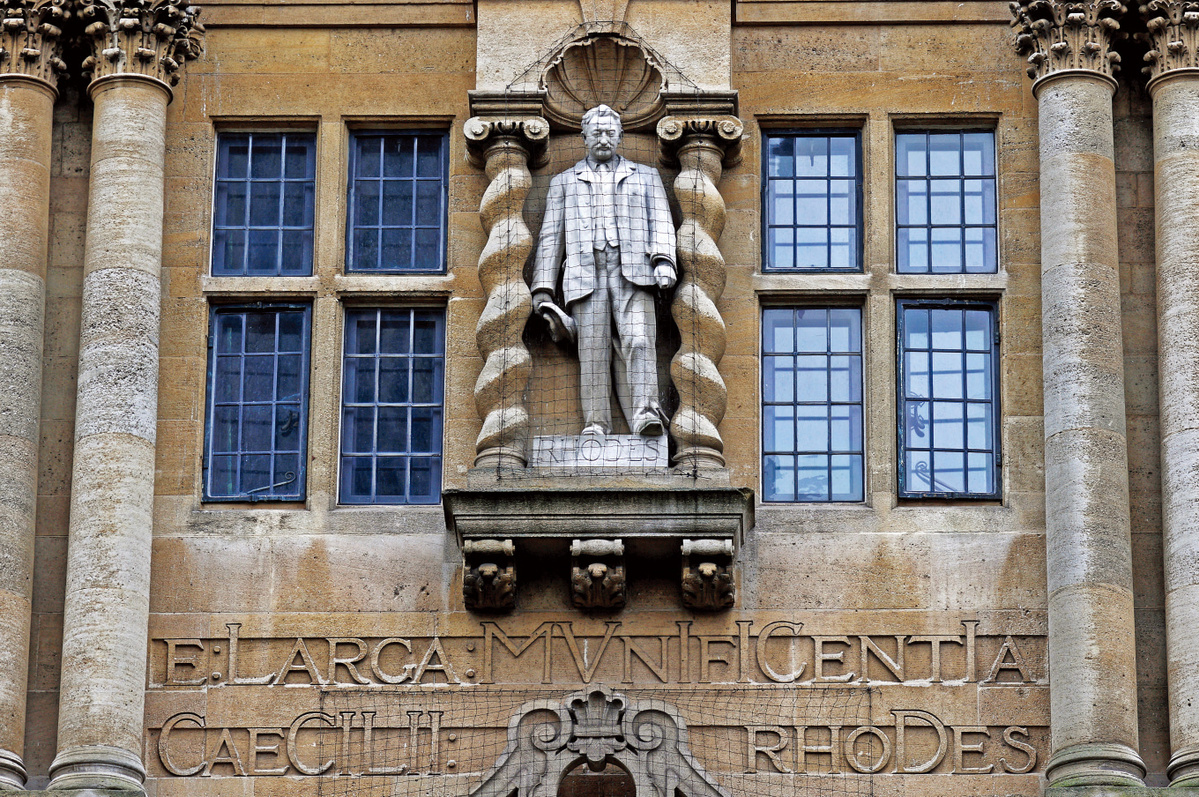
A statue of Cecil Rhodes, a controversial historical figure, is pictured outside Oriel College, in Oxford, Britain, on Thursday. There have been demonstrations for its removal in the aftermath of the death of George Floyd, who died in police custody in Minneapolis last month. (Photo: Agencies)
Controversial Oxford University statue of Cecil Rhodes moves closer to removal
Britain's largest pub chain and one of the world's most famous insurance markets are to pay reparations over their historical links to the slave trade.
The Greene King brewery and pub chain, which was bought last year by Hong Kong-based CK Asset Holdings, and Lloyd's of London made the announcement after research by University College London showed how significant figures in the companies' pasts had benefitted from slavery.
The move is the latest development in the global response to the death of George Floyd at the hands of police officers in the United States, and the subsequent rise of the "Black Lives Matter" movement.
"It is inexcusable that one of our founders profited from slavery and argued against its abolition in the 1800s," Greene King's Chief Executive Officer Nick McKenzie said, when told how one of the company's founders, Benjamin Greene, had owned at least 231 slaves, and that he had received the equivalent of nearly half a million pounds ($625,000) in compensation after the British empire abolished slavery in 1833.
"We don't have all the answers, so that is why we are taking time to listen and learn from all the voices, including our team members and charity partners as we strengthen our diversity and inclusion work," he added, saying Greene King would make a "substantial investment to benefit the BAME (black, Asian and minority ethnic) community".
Lloyd's is also looking for appropriate projects toward which it can contribute following the revelation that one of its founder members, Simon Fraser, held at least 162 slaves and received almost 400,000 pounds in compensation for giving up his plantation.
"We are sorry for the role played by the Lloyd's market in the 18th and 19th century slave trade," said a company spokesman.
"This was an appalling and shameful period of English history, as well as our own, and we condemn the indefensible wrongdoing that occurred during this period."
The on-going dispute over the statue of British imperialist Cecil Rhodes at Oxford University looks to have taken a significant turn after governors at Oriel College voted to remove it.
Rhodes made a fortune in the diamond industry in Africa, which helped fund Oriel and also the Rhodes Scholarship international student exchange program, but his role in the expansion of empire has led to his reputation being reappraised in modern times.
In 2015, Oriel engaged in a "six-month-long democratic listening exercise", so the anti-statue Rhodes Must Fall protest movement said it gave the latest news a guarded welcome.
"We have been down this route before, where Oriel College has committed to taking a certain action, but has not followed through," said a statement. "Therefore, while we remain hopeful, our optimism is cautious. While the governing body of Oriel College have 'expressed their wish' to take down the statue, we continue to demand their commitment."


